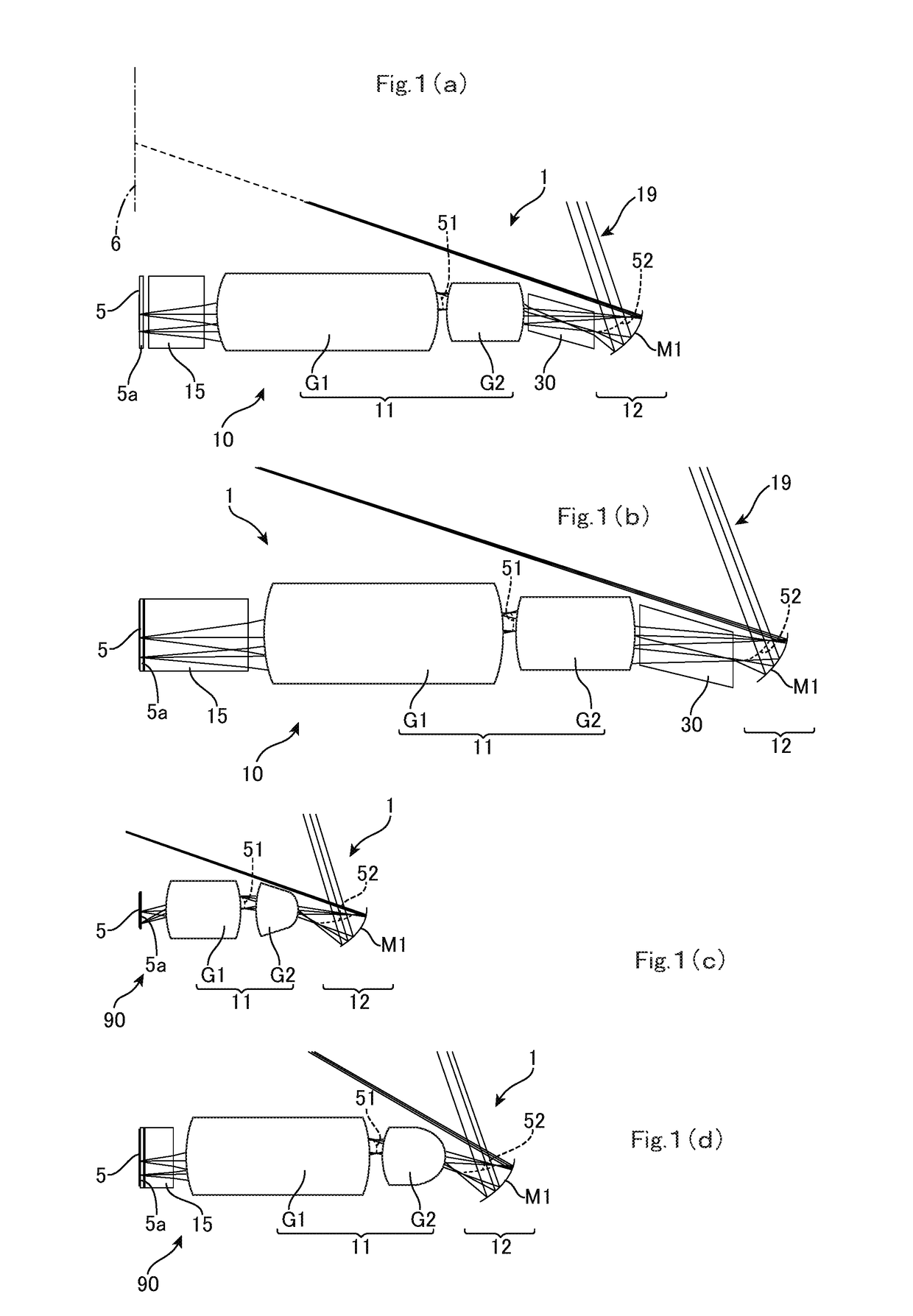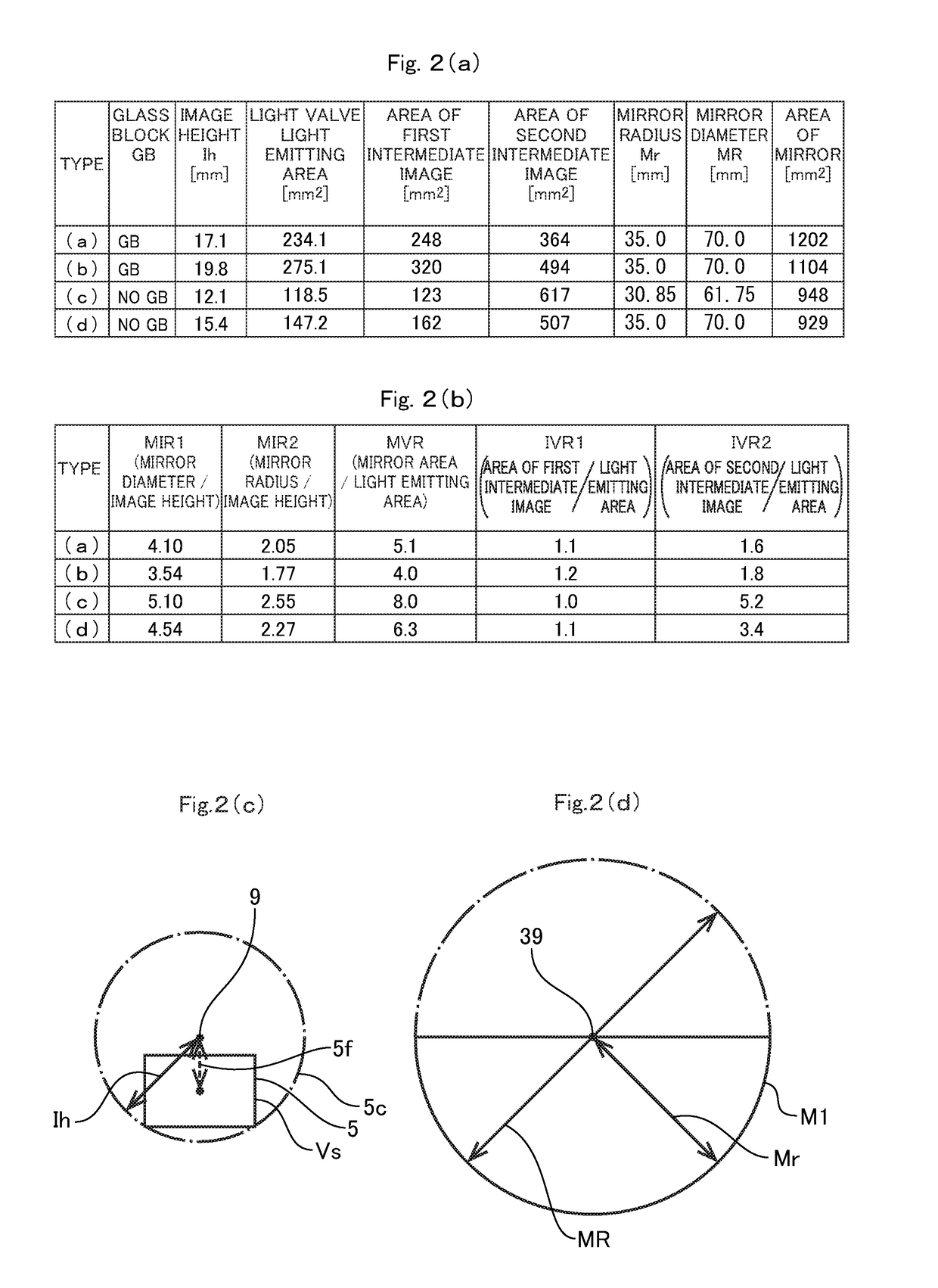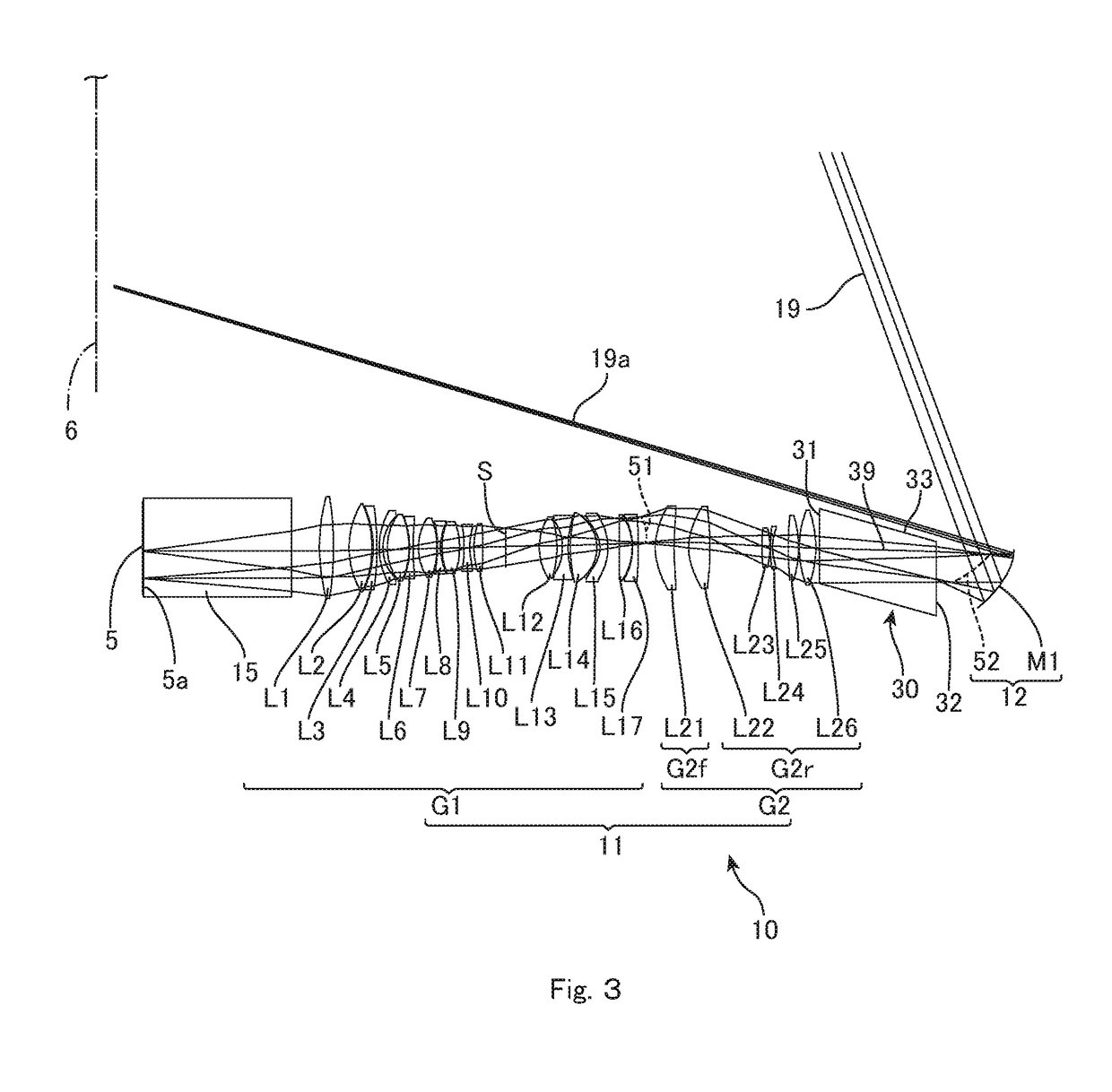Projection optical system and projector
a technology of projection optical system and projector, which is applied in the direction of picture reproducers, picture reproducers using projection devices, instruments, etc., can solve the problems of increased width of rays that reach the concave mirror from the lens system, interference between incident light and outgoing light, and difficult glass block inserting, so as to prevent the influence of physical factors, reduce the second intermediate image, and achieve favorable balance between performance and size
- Summary
- Abstract
- Description
- Claims
- Application Information
AI Technical Summary
Benefits of technology
Problems solved by technology
Method used
Image
Examples
Embodiment Construction
[0031]FIGS. 1(a) to 1(d) show several examples of projectors. The projector 1 includes a projection optical system 10 or 90 that projects light from an image forming plane (first image forming plane) 5a of a light modulator (light valve) 5 on a reducing side to a screen or wall surface (second image forming plane) 6 on an enlargement side. The light valve 5 is any device capable of forming an image such as an LCD, a digital mirror device (DMD), or an organic EL display, and may be a single panel-type device or a device that uses a method where images of different colors are individually formed. The light valve 5 may be a light emitting type or may be an illuminated type. When the light valve 5 is an illuminated type, the projector 1 further includes an illumination optical system (not illustrated). The screen 6 may be a wall surface, a white board, or the like, and the projector 1 may be a front projector, or may be arear projector that incorporates a screen.
[0032]The projection opt...
PUM
 Login to View More
Login to View More Abstract
Description
Claims
Application Information
 Login to View More
Login to View More - R&D
- Intellectual Property
- Life Sciences
- Materials
- Tech Scout
- Unparalleled Data Quality
- Higher Quality Content
- 60% Fewer Hallucinations
Browse by: Latest US Patents, China's latest patents, Technical Efficacy Thesaurus, Application Domain, Technology Topic, Popular Technical Reports.
© 2025 PatSnap. All rights reserved.Legal|Privacy policy|Modern Slavery Act Transparency Statement|Sitemap|About US| Contact US: help@patsnap.com



